A Dawn of Mammals Collection Read online
Page 27
Her hands were developing blisters by the time she had cleared the area under the trickle of water, and she wished for gloves.
Ted had helped by pulling the trailing vines well away from the area she wanted to use. He stood and watched, hands on hips, as she smoothed the area for the pool with her boot. “This isn’t going to work,” he said.
“What?”
“Not without mortar. I just now realized. There will be spaces between the rocks, and the water will flow right through. If we pack them with dirt, the water will drain through that. We need a bag of concrete.”
Huh. He was right. Hannah stretched, easing her back, and thought for a minute before saying, “Clay. We need clay, and some way to harden it. Baking it makes sense. So. Hmm.” She thought it through. “What we need, then, is to find clay, which is probably going to be easy. Then we need to mortar the base of the pool with that, and then cook it in place.”
Dixie had returned with another pair of flat rocks. “How?” she asked.
“I think if we heated rocks in a really hot fire, and then transferred them to the base of the pool, they’d cook the clay. Like a kiln. But wait. I think kilns have to bake a really long time. So it might take all day, shoveling rocks on, heating more, taking the cooling ones off, putting the hot ones on.”
Dixie said, “We don’t have a shovel.”
Hannah shook her head. “No. I guess I didn’t think this through well enough before we came here today.”
Ted said, “No, it’s okay. We’re getting closer to a solution just by talking about it.”
Dixie said, “You know, it’s pretty hot here. Maybe leaving it alone for a few days will do it, set the clay into something like concrete. It’ll dry and be waterproof.”
Ted said, “A combination. Go ahead and start with hot rocks, so it’s hard enough that a rain won’t wash it away and then wait a couple days.”
Hannah said, “We might have to try a few times, maybe with different soils.”
“We won’t die first,” said Dixie. “I mean, there’s the lake water.”
“Labor-intensive getting it filtered, but yeah, you’re right,” said Hannah. “Or not labor-intensive, but time-intensive. And dangerous.”
The scream of the terror crane froze them all.
“This isn’t any too safe,” Ted muttered.
“Shh,” Hannah said. She couldn’t see the terror crane, but she had a bad feeling it was coming this way. And then she realized: she had just ripped up their only good cover.
Chapter 18
“Ted, you think you can climb this rock?” she whispered. “Dixie?”
“Maybe,” Ted said. “Not in these boots.”
“Try.”
At that moment, the cry came again, from closer.
Dixie was looking wide-eyed with terror. She looked up at the rock face, about twenty-five feet of pretty much vertical rock. There were cracks to use as handholds, but Dixie shook her head. “I hate heights,” she whispered. “I’ll fall.”
Ted had taken his shoes off and was feeling along the rock for his first place to grab.
Hannah wanted to say, “Be careful. Don’t fall,” but of course that wasn’t necessary. He’d do his best not to fall. She wondered why she kept having these crazy maternal urges to broadcast useless warnings. She said to Dixie, “Lie down.”
“Shouldn’t we run?” They were both whispering.
“Which direction? We don’t know.” Hannah motioned her to the ground. “I’m going to cover you with the fern fronds. If you’re quiet, you’ll be safe.”
Dixie dropped to the ground and lay on her back.
Hannah flung the ferns over her, thinking she may have just lied to the girl. She had no idea if it was safe. The terror crane might smell her anyway. But if Dixie wasn’t willing to climb, Hannah had to try something. She piled the ferns deeply over the girl from her neck down, and less thickly on her head, leaving her enough space to draw breath.
The terror crane shrieked again. Closer still.
Hannah looked around and saw it come into view. It had its wings spread—not very big wings—and was looking around. Hannah froze as its head swiveled in her direction. She was standing there in sunlight, visible. If the bird turned its attention this way, she was done for.
When it swung its head down to pick at something on the ground, Hannah had to decide. Move, or stay frozen and hope for the best? If there was a speck of shade from ferns, she might be safe there, but she was utterly exposed.
She glanced back and saw Ted was already three-quarters of the way up the rock face. Another fifteen seconds, and he’d be to the top of the plateau and safe. The predator bird hadn’t noticed him. Maybe it was focused only on the ground?
The bird looked up again, moved forward three steps, and then bent its head again to feed. Hannah took the opportunity to lean over and untie her boots, kicking them off. She slipped the backpack off too, and let it drop. She was going to climb as well. She hated leaving Dixie here alone, but if the girl stayed perfectly still, she’d surely be safe.
She waited for the bird to finish whatever it was doing, look up, move again, and bend again to feed. Then Hannah spun and scanned the rock face, found a likely first hold under the path Ted had taken, and went for it.
She grabbed the first handhold, a protruding chunk of rock, and began to climb. Three points of contact, at all times. One hand, one foot, the other hand, the other foot. Methodical movement. She couldn’t spare a moment—or the concentration—to check on the bird. She just climbed, as fast as she could.
“Hannah,” Ted said from over her head. “It sees you.”
She froze, hoping that would make it forget, but when Ted said, “Hurry!” she got moving again. She had to do two finger-jams in a row to get past a sheer spot, and her blistered hands would have screamed in protest if they had a voice. She took risks she wouldn’t usually, letting three points of contact become two, just to get herself up ahead of the predator.
The terror crane shrieked its unearthly call again, and close. She expected to at any second feel the grip of its heavy beak on her leg, peeling her off like a worm from a twig.
But what she felt instead was the grip of Ted’s hand on her wrist. And then he was hauling her, and her feet kicked out, finding a perch, propelling her up. She felt the force of Ted pulling her, making her arms feel like they were going to be popped from their sockets. But better that than being eaten alive.
Her stomach scraped against rock as she tipped over the edge of the plateau.
Ted’s hands let go. He said, “Roll back! Roll back!”
She twisted and rolled away from the cliff’s edge, and when she had rolled over so her face was aimed out, she saw the head of the bird, far too close for comfort.
It was as tall as the plateau was, or taller; its whole head cleared the top. She found herself next to a head half as big as she was, staring into a glittering, dark round eye. Time froze for a second as they contemplated each other, and then its head began to move forward, its beak to open, and she rolled again, fast, away from the reaching head.
Twice over, she rolled, and then a third time. She could smell the breath of the creature, a strange, yeasty smell.
“You’re clear!” Ted said. “Get up, over here.”
She scrambled to her knees and scuttled in his direction. Shakily, she climbed to her feet.
“That was close,” Ted said.
“Oh my God,” Hannah said, watching the bird’s head, still stretching forward. “Can it get up here do you think?”
“We haven’t seen it fly.”
“I doubt it can. But it might climb, or hop.”
“It’s a heck of a hop. Let’s move farther back, just in case,” he said.
“Maybe you should go. Run, down the slope, and duck back into the woods where they’re densest. It’s too big to follow us very far into the trees.”
“I can’t leave you. Or Dixie.”
She had forgotten. “Dixie�
�s down there, right under it. I hope she’s staying still.”
“I hope it’s not standing on her. It has to weigh a ton.”
A horrible thought. “I can’t leave until I know she’s safe. But you can. Run.”
“I won’t,” he said. “I’m going to get some rocks. We can fight it together.”
Hannah didn’t think they could fight this thing. It was too big. If they trapped it with a net, it’d bite right through it with that wickedly sharp beak. If they surrounded it with spears, one of them would die, just as had happened with the saber tooth. Throwing rocks from a distance was about the only way she’d want to battle it, but it wasn’t going to hurt it at all, she feared. At best, they’d irritate it.
Ted went to the edge of the plateau farthest from the bird to hunt for rocks while Hannah and the bird contemplated each other.
There was little intelligence behind those golden eyes. No curiosity. No sign of thought. Just a base animal hunger. “Go away,” Hannah said. She was still shaky, and her voice came out quivering and soft.
The bird’s beak opened a fraction and, seemingly without effort, the raucous cry sounded.
Hannah clapped her hands over her ears. The thing could rent itself out as a foghorn or tornado siren back in the 21st century.
The beak closed and it turned its head, the sun flaring up the iridescence in the crest. It turned away and its head dipped out of sight.
Dixie.
Chapter 19
Hannah took a half-dozen steps forward and called, “Don’t move, Dixie. Not an inch!” It was too easy to imagine the bird rooting through the pile of ferns and finding something. Finding lunch, in fact. Finding Dixie.
Ted ran forward. “Here are some rocks.”
Cautiously, expecting the bird’s head to reappear, they made their way forward, side by side, all the way to the edge of the plateau.
The bird was rooting around. Maybe it knew this place. Maybe it drank dew off the ferns at the base of the trickle of water.
Its head began swinging back and forth, over Dixie’s hiding place and then back. Was it smelling her? Hearing her? Detecting the heat of her?
“Let’s try hitting it with the rocks,” Hannah said.
“Done,” Ted said, and he began throwing the rocks at the bird’s head.
Hannah did the same. Ted’s first one hit, and the creature began to raise its head, so her rock hit it low on its neck instead of its head. The big head swung around again moving up, and she and Ted backpedaled.
“Dixie,” she yelled. “Don’t move at all!” Maybe the animal would forget about any noise or motion it had seen on the ground if she and Ted could distract it for a time.
She pelted the rising head with her remaining rocks. The animal screeched again, so loudly it hurt Hannah’s ears. Ted had run back to gather more rocks, so to distract the bird, Hannah feinted toward it, then skipped to one side, and back to the other, trying to keep it interested in the moving prey. Maybe its tiny brain was telling it this was the better food choice, this lively bit of meat.
A rock sailed past her. She jerked her head away from it.
“Sorry!” Ted said. He threw a series of six rocks, rapidly, striking the animal with every one. One clunked with a loud clank off the beak. The last hit just under the eye, on the red feathers, and the animal reared back, its small wings flapping.
Hannah ran forward to the edge of the cliff, waving her arms, yelling.
The terror crane backed off and, with a shake of its head, turned around and trotted off, its strides eating up the ground. In no time at all, it was out of sight.
Ted was already lowering himself off the plateau.
“Be careful going down!” she said. She went for the easier slope and ran around to where Dixie had been hidden. Ted had already gotten the pile of ferns off the girl and was squatting by her.
“You okay?”
Dixie was wincing. “It stepped on me. Sucker weighed a ton.”
Probably only four hundred pounds or so, but it certainly wasn’t a lightweight. “Where?”
“My knee. I mean, half of my leg, but the knee is what hurts.”
Dixie’s shorts had been a source of irritation for weeks, but now they ended up making it much easier to examine her. There were two red marks, at an angle to each other, showing where the claws had rested. Neither was bleeding, but both were deeply indented. “You’re going to have a heck of a bruise in a day,” she said. “Bend your knee, slowly.”
Dixie did, biting her lip. “Right there. It hurts.”
“Show me. Point.”
Dixie reached down and traced a line through her kneecap.
Hannah palpated it, made sure the kneecap wasn’t moving excessively, and decided it wasn’t. “Describe the pain.”
“Hot.”
“Maybe a nerve got compressed or something. Let me wrap it.” Before she could turn to look for her backpack, Ted had already dropped it by her side. “Thanks, Ted.” She got the elastic bandage out—stained now with the dried blood of several people—and wrapped Dixie’s knee.
“Hurts,” said Dixie.
“We need you to walk. Can you?”
“I don’t know.”
“Ted, help me get her to her feet.”
Dixie said, “What about building the pool?”
“It can wait until tomorrow. Besides, I have to hunt for clay first. Let’s get you back to camp.”
And out of the hunting grounds of the terror crane.
Chapter 20
Dixie could put weight on her knee, but it was obviously painful for her to do so. Ted served as her crutch, letting her lean heavily on him. Hannah grabbed Ted’s spear and followed, turning around every dozen steps to check for danger in every direction until they’d reached the relative safety of the trees.
It took more than twice as long to get back to the camp as it had taken to cross the same distance this morning. By the time they were there, Ted was pouring sweat. The camp was empty.
“I could sure use a drink,” Ted said.
Hannah handed him the only water bottle she had taken along and said, “Finish it.”
“What about you two?”
“You need it worse. You’re losing more by sweating.”
“I could use a bath too. I could walk to the lake and get both, and bring you back some water.”
“I wish you could, but I don’t want you walking alone.”
“I wish we had an ice pack,” Dixie said.
“Me too,” Hannah told her. “For your knee, but wouldn’t it be nice to have a tall glass of iced water?”
“Tell me about it. A Coke. Or tea. Lately I’d been into this peach tea. You know, in the bottles?”
“Yeah,” Hannah said. “I want to elevate your knee above the level of your heart, see if we can minimize the swelling that way.”
“So I have to just lie here? And do nothing?”
“’Fraid so.” Hannah moved to Dixie’s side.
“Boring.”
“I know. Here.” She helped the girl lie down and then peeled off her pack and stuck it under the injured knee as a cushion. “Try not to move much.”
“I wish I had a book or something. Even some stupid science book from school.”
“Why don’t you both, um....” Hannah was at a loss.
“We could play trivia,” Ted said. “Like I ask you a question, you ask me one.”
Dixie seemed to perk up at that. Hannah had been planning on setting Ted to some useful task, but maybe it was better to distract Dixie for an hour, to keep her from getting whiny.
“Okay,” Dixie said.
“Okay. Name the lowest three ERAs for pitchers in the Major League last year. At least three hundred innings.”
“How would I know that?” she said. “I don’t know anything about baseball.”
“Football?” he said.
Hannah left them to find a topic of mutual interest and went to build up the fire again. She saw the pile of horse bones, w
hich they had decided weren’t worth putting in the steam pit last night, and bones, and they reminded her of something else she wanted to do. She looked around, saw the right sort of tree, a palm, and went to peel off some thick, broad leaves.
She took them into the camp, where Dixie and Ted had settled on music as the trivia topic, and Hannah sat down a dozen feet away from them to try and make a basket. She laid out a dozen of the leaves in a row, parallel to each other, touching, and took another leaf and crossed the first dozen. She’d be able to weave them in, out, in, out. But how watertight would that be? Not very. But she had to start her experiment in basketry somewhere.
“Hannah?”
She looked over. Dixie and Ted were watching her. It was Dixie who had spoken.
Hannah said, “What? Are you okay?”
“What are you doing?”
“I’m trying to make a watertight basket, now that we have these wider leaves to work with. Just starting to think it through, really.”
“To carry water?” Dixie said.
“I hadn’t even thought about that, but yeah, sure, that’s also a good idea. With a tall, waterproof basket, we could get more back here that way. Keep our trip to one per day.”
Ted said, “Then what were you thinking?”
“Boiling the horse bones for soup. Or the clams, or the fish bones. If a big basket for that is possible, little baskets would be too, and we could use them for bowls for the soup.”
Dixie said, “But if you put a basket over the heat, it’d just burn up.”
“It would. I’d be using a different technique that Bob reminded me of a few weeks back. You put cold—or room temperature—water in the basket. Then you heat stones. You add the hot stones to the basket, and you can get the water really hot that way. Keep fishing out the cooled stones and adding hot ones, and eventually you have soup. They say you can get it to boiling, though I’ve never tried.”
Ted said, “How do you move the hot rocks? We can’t just kick them around like we do at the fire ring.” That’s how they’d been moving hot rocks into their steam pit, with their boots.

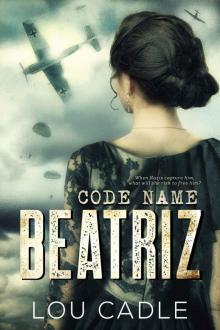 Code Name- Beatriz
Code Name- Beatriz Oil Apocalypse Collection
Oil Apocalypse Collection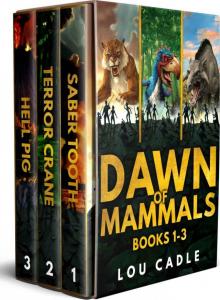 A Dawn of Mammals Collection
A Dawn of Mammals Collection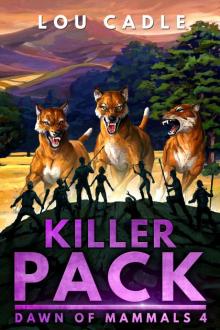 Killer Pack (Dawn of Mammals Book 4)
Killer Pack (Dawn of Mammals Book 4)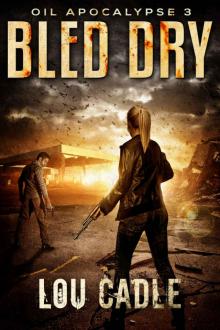 Bled Dry
Bled Dry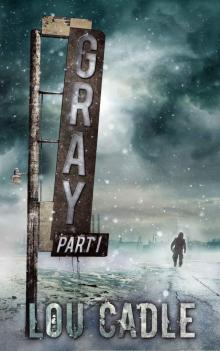 Gray (Book 1)
Gray (Book 1) Dawn of Mammals (Book 4): Killer Pack
Dawn of Mammals (Book 4): Killer Pack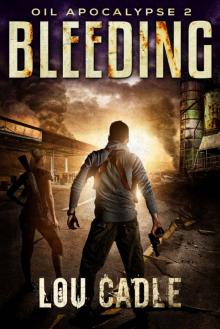 Bleeding (Oil Apocalypse Book 2)
Bleeding (Oil Apocalypse Book 2)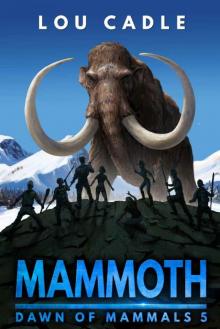 Dawn of Mammals (Book 5): Mammoth
Dawn of Mammals (Book 5): Mammoth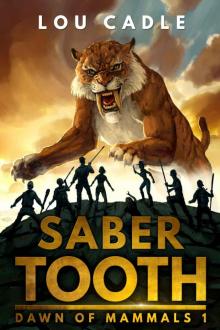 Saber Tooth (Dawn of Mammals Book 1)
Saber Tooth (Dawn of Mammals Book 1)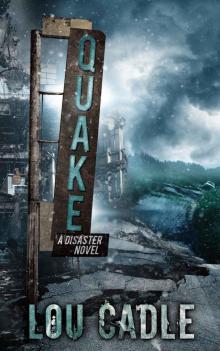 Natural Disaster (Book 2): Quake
Natural Disaster (Book 2): Quake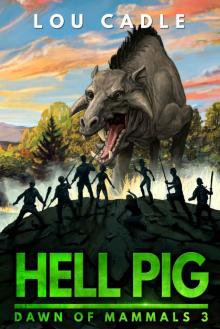 Hell Pig (Dawn of Mammals Book 3)
Hell Pig (Dawn of Mammals Book 3)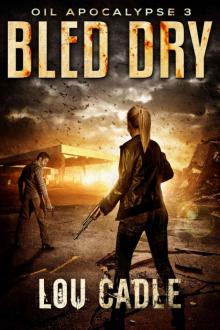 Bled Dry (Oil Apocalypse Book 3)
Bled Dry (Oil Apocalypse Book 3)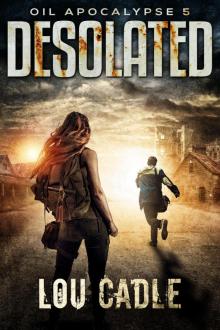 Desolated
Desolated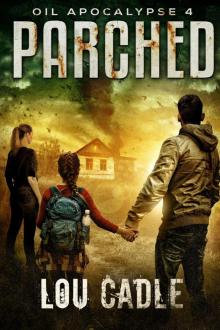 Parched
Parched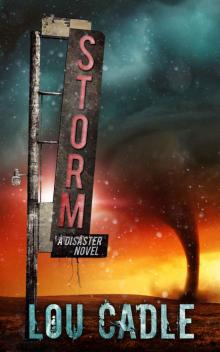 Natural Disaster (Book 3): Storm
Natural Disaster (Book 3): Storm Natural Disaster (Book 1): Erupt
Natural Disaster (Book 1): Erupt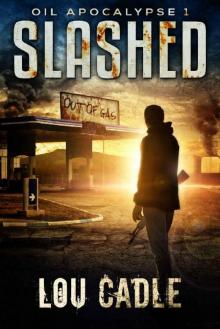 Slashed (Oil Apocalypse Book 1)
Slashed (Oil Apocalypse Book 1)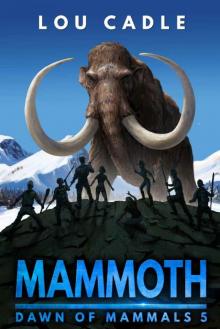 Mammoth (Dawn of Mammals Book 5)
Mammoth (Dawn of Mammals Book 5)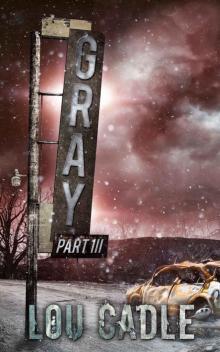 Gray (Book 3)
Gray (Book 3)